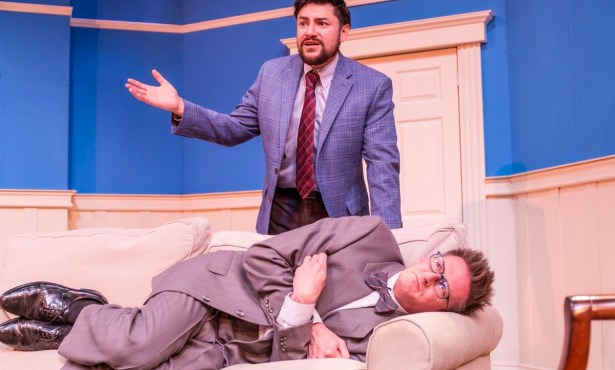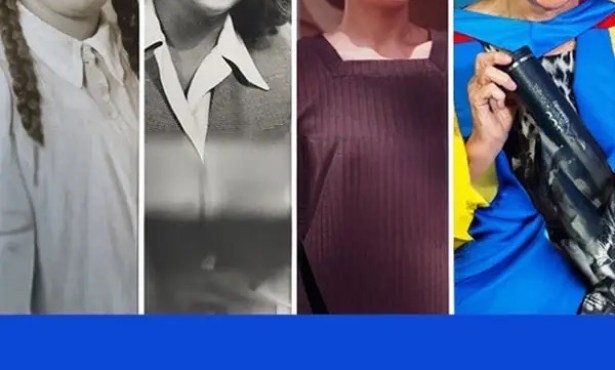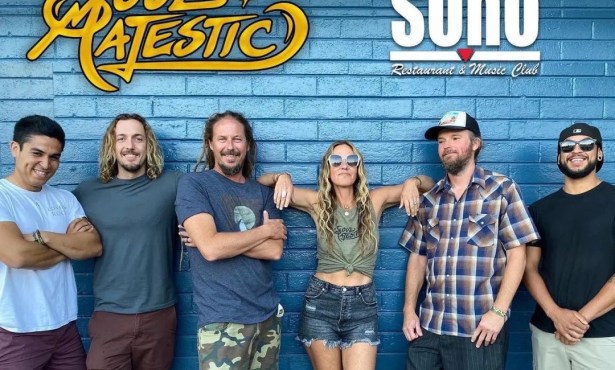UCSB Celebrates and Investigates the Art of Film Preservation
The Future of the Past Series Brings Lawrence of Arabia to the Pollock Theater

Remember Peter O’Toole crossing the Sahara to the Suez Canal and, after mega-dusty travails, suddenly seeing a boat’s smokestack preposterously moving across the desert? Cue the lush music, please, and then cut to the triumphal view of the canal, with Lawrence of Arabia standing there proud and exhausted. Now try to imagine that the only place you could see that scene is on a little computer screen, or worse: Imagine a world in which David Lean’s beloved epic biopic had disappeared.
Movies used to be a disposable art form. They showed on neighborhood big screens and then went away. Despite revival houses and even television reruns, it wasn’t until the advent of home video in the 1980s that the general public saw movies (not made by Disney) more than once in their lives or even imagined them stored somewhere. Home video saved films but also created mythology. “Everybody thinks that everything is available,” explained UCSB assistant professor Ross Melnick last week in his book-lined office. “It’s just not true.” In fact, the statistics sadden. Between 80 and 90 percent of all silent movies made have been lost, Melnick explained. Talkies haven’t done much better, particularly movies released before the 1980s. And then there are the films we assume are real art, as opposed to mere blockbusters. “Think of most of the movies in the Santa Barbara film fest,” he said, lumping them in with art films, not to mention the avant-garde. “It’s unlikely any of them will be archived.”
Last month, Melnick, who is a brand-new professor in UCSB’s Film and Media Studies department, began a fun public forum for issues of film art preservation, industry, and restoration. Held at the brand-new Pollock Theater, the program combines expert lectures with sometimes breathtaking screenings. It’s been Melnick’s passion since his first days working in the biz after graduating college. Back then it was the palaces that drew him to create a website called Cinema Treasures, which advocated for places like the Arlington in the age of the megaplex. Eventually this led him to love film history, which led him to graduate work at UCLA, a campus that hosts one of the top archive and preservation centers in the world. Arriving here, he decided to make good on his passion. “It was one of the things I talked about while interviewing for my new job,” he laughed. And instead of retreating to an ivory bungalow, Melnick, along with other key UCSB people, put together The Future of the Past. The series spotlights four films shown in their entirety, accompanied by lecturers from diverse fields who are trying to save cinema from the dustbins of neglectful history.
Melnick enjoys describing the many paradoxes of contemporary preservation efforts, such as a new respect film media has garnered over digital among pro preservationists. Controversies also rage over how far the restorer ought to go. Consider Lawrence of Arabia, which screens at the Pollock on February 26, digitally scanned from film stock, cleaned up frame by frame, and then put on a hard drive. But people doing the work have confronted several temptations, among them the urge to make the digital version better than its film original. It’s a weird turn on the old Hippocratic Oath — first do no harm, or, in this case, leave it really real.
“This will be the most gorgeous version of the film you can see,” promised Melnick. “For people who loved it and have seen it in the last 40 years, it will be the best they have seen since 1962. But it won’t look more perfect than the original release.”
The series concludes one week later with something very different, an old-school chemical film restoration presented on film of the Elia Kazan movie Wild River, which should satisfy those with sentimental celluloid preferences. Melnick admittedly wants to show off the archiving potentials at UCSB, the great Pollock Theater, and his shared complicated interest in this worthy endeavor to save what might have ended as throwaway art.
“I want to start a new conversation with a new generation of people who may not be as excited about seeing movies in theaters. And it’s a part of a larger cultural conversation about keeping movies and moviegoing part of our cultural life.”
4•1•1
Lawrence of Arabia screens at UCSB’s Pollock Theater on Tuesday, February 26, at 7 p.m. The film will be followed by a Q&A with Grover Crisp, executive vice president for asset management and film restoration at Sony Pictures Entertainment. For tickets, information, and a full schedule of screenings, visit www.carseywolf.ucsb.edu/pollock.



